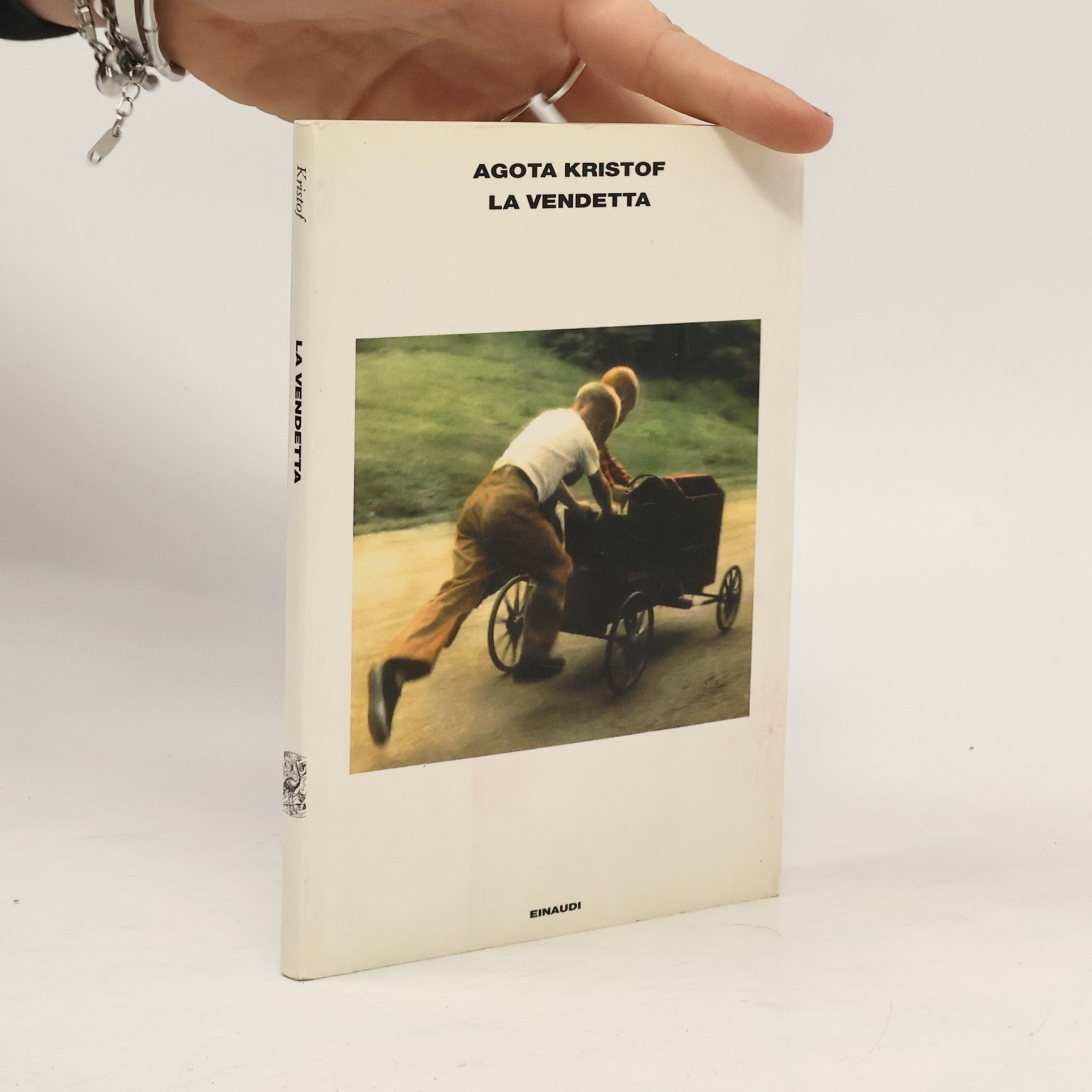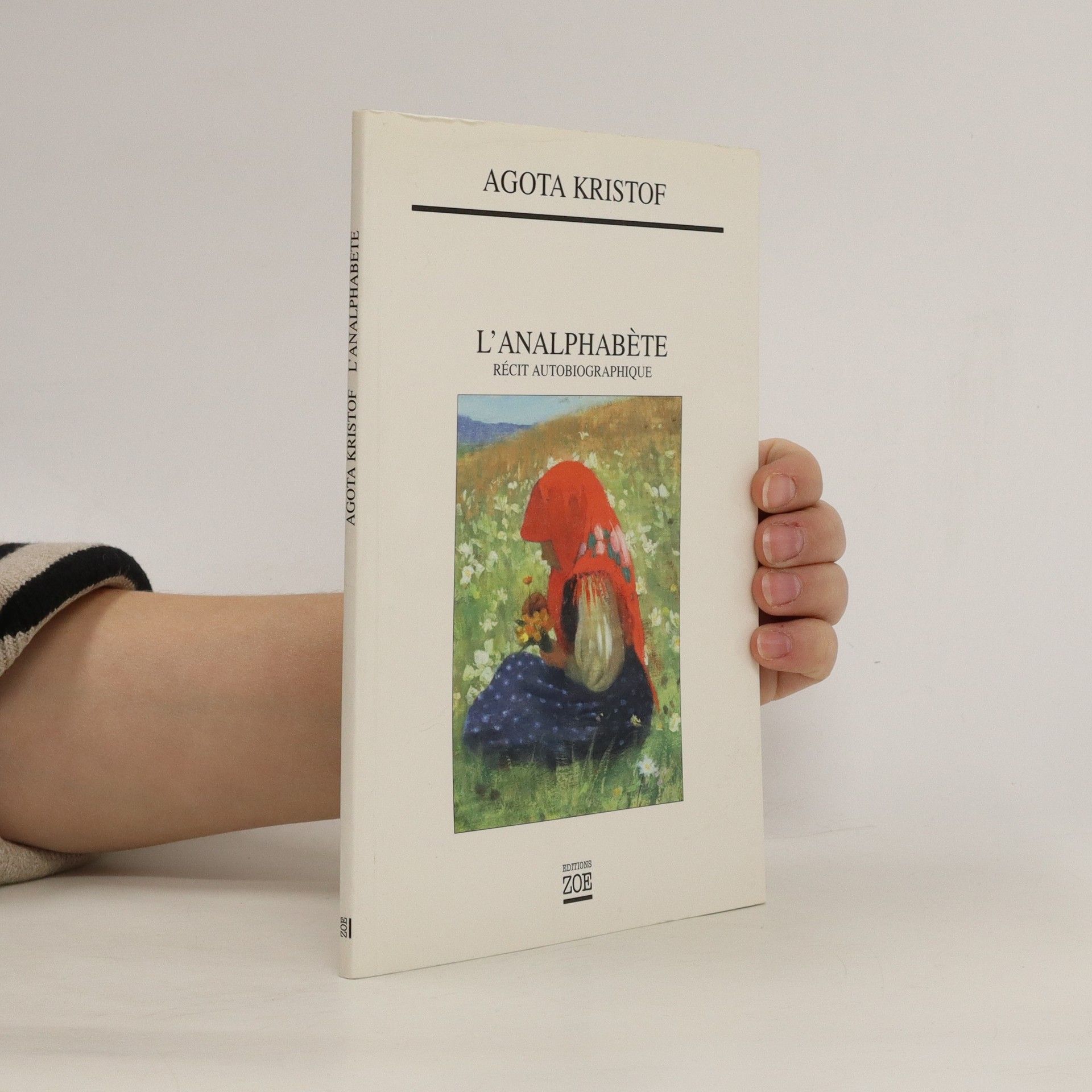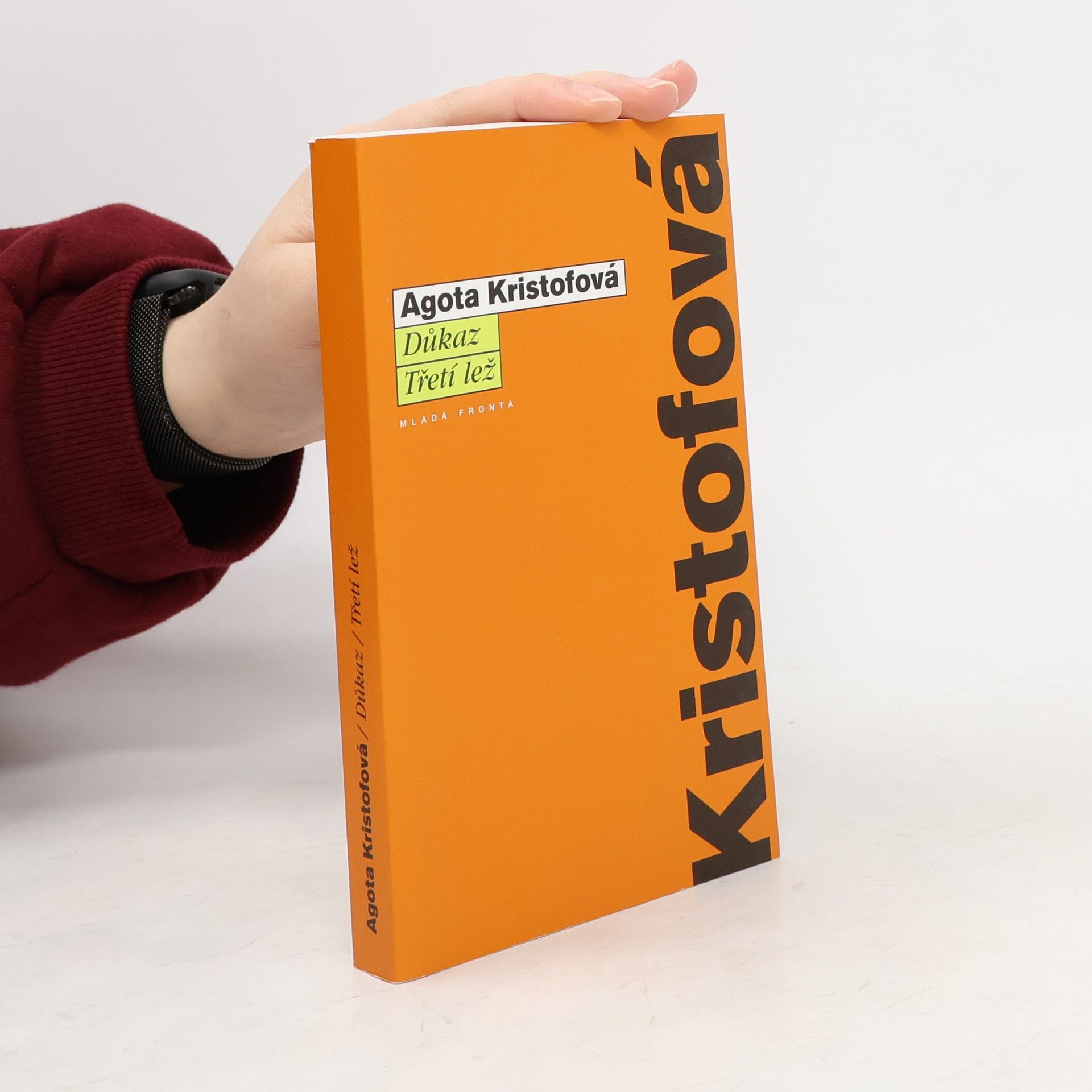Un'irresistibile vertigine tra sogno e realtà caratterizza i racconti di "Dove sei Mathias?", esplorando temi come l'infanzia, la nostalgia e l'illusione. "Line" presenta un dialogo teatrale tra un giovane e una bambina, mentre "Dove sei Mathias?" sfida il lettore con le sue allucinazioni e ambiguità sui personaggi.
Ágota Kristóf Book order (chronological)



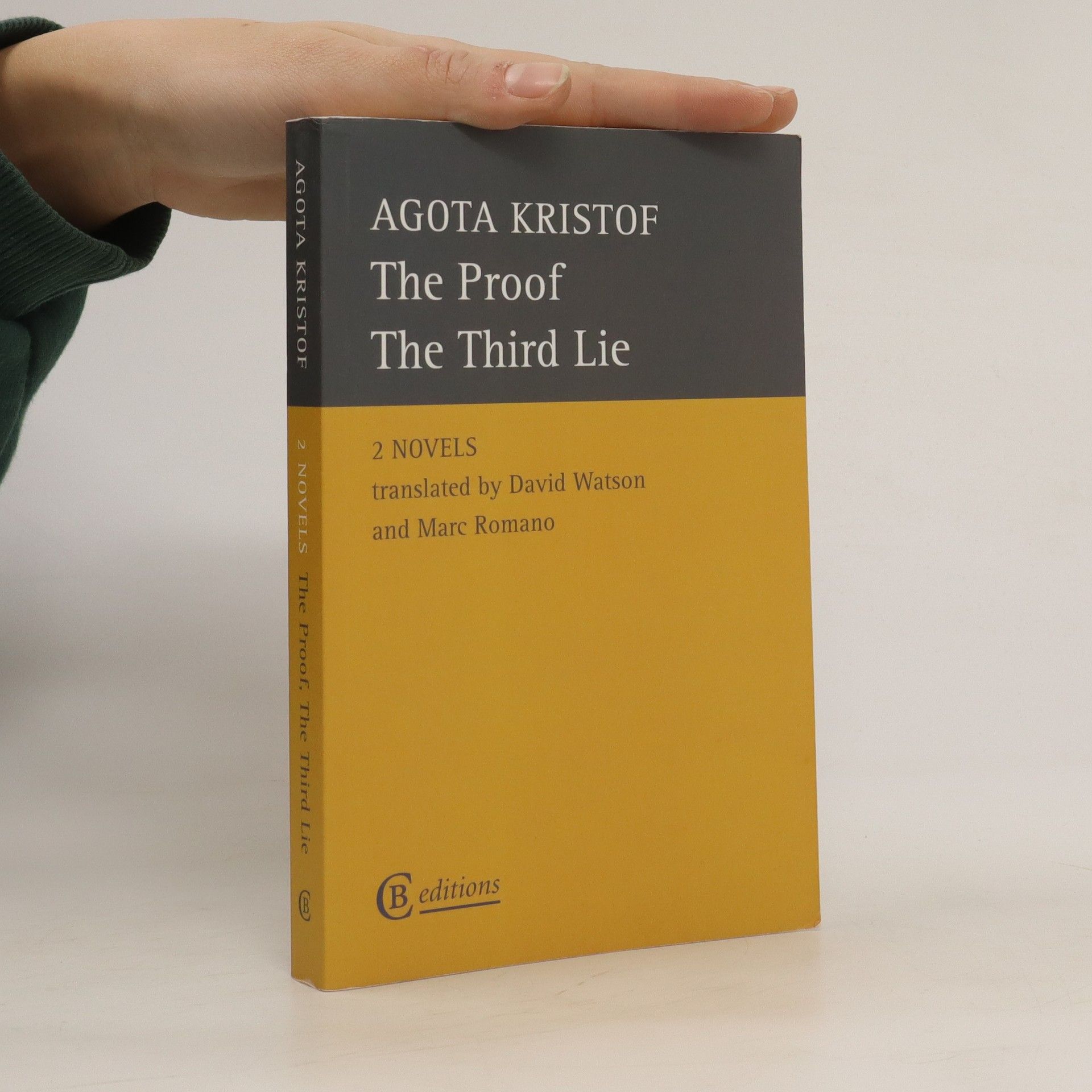


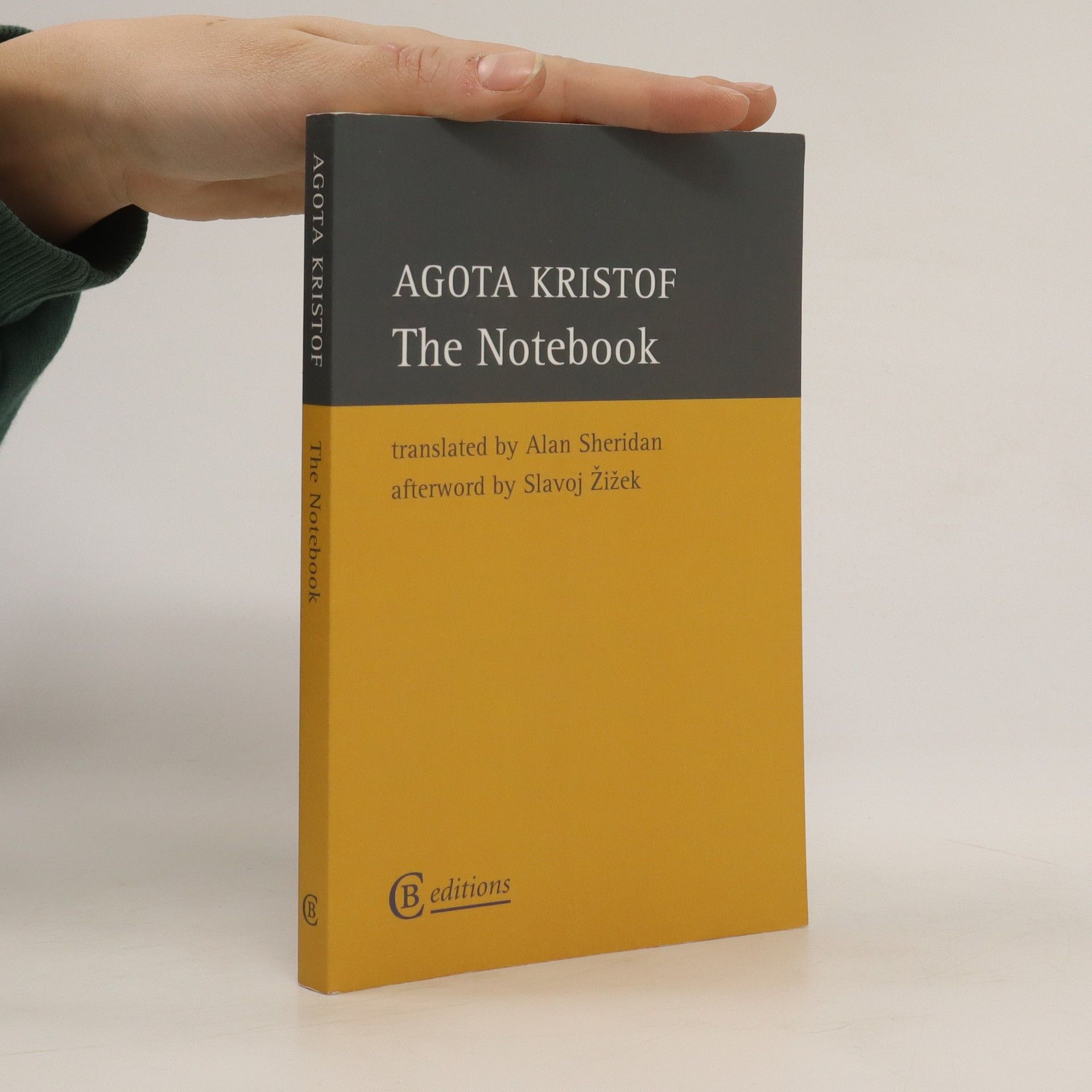
Napriek názvu a podnázvu je kniha určená všetkým generáciám a všetkým ľuďom dobrej vône. Osvedčená dvojica Kalamár – Lipták (aforista – výtvarník) po úspešnej knihe DROBNOSTI FLAJSTROV (Petrus, 2022) dokazuje aj v tomto dielku, že aj tie najťažšie a najhoršie prekážky sa dajú preskočiť (alebo podliezť) s humorom a nadhľadom. Autori sa výnimočne dopĺňajú a navzájom si geniálne nahrávajú pre pobavenie zorientovaného čitateľa, ktorý žije výnimočnú dobu spestrenú rozhodnutiami ešte výnimočnejšej vlády... Kniha vychádza v edícii DVAJAvJEDNOM vo výnimočnej grafickej úprave Martina Kurhajca.
Narrated in a series of brief vignettes, The Illiterate is Kristof 's memoir of her childhood, her escape from Hungary in 1956 with her husband and small child, her early years working in factories in Switzerland, and the writing of her first novel, The Notebook.
The child says, ‘That’s the only difference between the dead and those who go away, isn’t it? Those who aren’t dead will return.’ Lucas says, ‘But how do we know they aren’t dead when they’re away?’ ‘We can’t know.’Following on from The Notebook, which recounted the survival of twin brothers during war and occupation, The Proof and The Third Lie complete the trilogy of novels in which Kristof, as an emigré writer, forged wholly distinctive ways to treat the 20th-century European experience of war, occupation and separation.As the brothers Claus and Lucas, isolated in different countries, yearn for the seemingly impossible restoration of their lost connection, perspectives shift, memories diverge, identity becomes unstable. Written in Kristof ’s spare, direct style, the novels are an exploration both of the aftereffects of trauma and of the nature of story-telling.‘At the heart of this acrid trilogy, in all its studied understatement and lack of portentousness, we can feel the author’s slow-burning rage at the wholesale erasure of certainty and continuity in the world of her childhood and adolescence. At the same time we sense Kristof saturninely enjoying this annihilation for its imaginative potential. She will reassemble a shattered world on her own rigorous terms, and watch us wince and shudder in the process.’ – Jonathan Keates, Times Literary Supplement
La vendetta
- 76 pages
- 3 hours of reading
L'autrice di "Trilogia della città di K." scrive in questi racconti essenziali da torcersi in apologhi - di emozioni paralizzate, di solitudini che anelano incontri che poi rifuggono, della crudeltà dei bambini che rispecchia quella degli adulti, di claustrofobiche e sadiche torture famigliari. Racconti che parlano di emozioni paralizzate, di solitudini che desiderano incontri che poi rifuggono, crudeltà di bambini che rispecchia quella degli adulti, di torture famigliari. Ritratti di personaggi distrutti che tuttavia tentano di conservare la dignità; perdenti che, pur consapevoli del proprio destino, perseverano in una lotta rassegnata, a volte stralunata. C'è chi si aggrappa alla promessa di una voce inaspettata all'altro capo del filo; chi si sposta dall'immobilità del proprio appartamento per rannicchiarsi all'entrata di un grande magazzino, d'inverno, e assiste all'insensato via vai del mondo approfittando delle correnti di aria calda. Vite alla deriva che cercano ostinatamente di tornare a casa, di rivedere in faccia il proprio passato. Schegge narrative che raccontano un mondo mostruosamente duro, di fronte al quale domina il senso di estraneità e di smarrimento.
Agota Kristof's celebrated trilogy of novels exploring the after-effects of trauma and the nature of story-telling in the context of Nazi occupation and Soviet 'liberation' at the end of World War Two.
Onze chapitres pour onze moments de sa vie, de la petite enfance en Hongrie à l'apprentissage du français et à l'envoi de son premier roman à des éditeurs parisiens. La pauvreté matérielle en Hongrie pendant l'enfance et les années d'internat, l'endoctrinement, la langue maternelle et les langues ennemies, allemande et russe, la mort de Staline, la fuite vers l'Autriche, l'arrivée à Lausanne avec son bébé, tous ces récits ne sont pas tristes mais cocasses, avec cet humour noir qui traverse toute l'oeuvre de la romancière. Phrases courtes et mots justes, efficacité des histoires et lucidité carrée, un humour immense, le monde d'Agota Kristof est là, dans sa vie comme dans ses romans.
Druhý a třetí díl volné trilogie navazuje na Velký sešit (1986), který tvoří deníkové záznamy osudově spojených bratrů – dvojčat, podivně geniálních i cynicky krutých, kteří prožívají dětství za války v pohraničním městečku u své babičky. Důkaz (1988) sleduje příběh jednoho z nich, Lukase, úředně prohlášeného za idiota, který poté, kdy jeho bratr překročí ilegálně hranice do sousední svobodné země, dál osaměle hospodaří v babiččině domě v zemi okupované cizí armádou. Třetí lež (1991) je retrospektivním monologem dvou stárnoucích mužů: Clause T., jehož osudy jsou totožné s osudy Lukasova bratra emigranta, a Klause Lukase, slavného básníka nedávno osvobozené země.
Dün
- 84 pages
- 3 hours of reading
Tobias önemsiz bir ülkenin ismi olmayan bir köyünde doğmuştur. Annesiyle yokluk içinde yaşar. Annesi köyde dilenir; un, mısır veya süt karşılığında erkeklerle yatar; tarlalardan, bahçelerden meyve sebze toplar, bazen de çiftliklerden tavuk çalar. Küçük Tobias bir gün annesi bir erkekle yatarken ikisini de bıçaklar ve köyünden, ülkesinden kaçarak başka bir ülkeye sığınır. Yeni bir ülkede yeni bir hayata başlar. Adı artık Sandor Lester'dir. Bir fabrikada işe girer. Yazar olma hayalleri kurar. Ama ilkokuldaki kız arkadaşı Line'i unutamaz, onun bir gün yanına geleceğini umut eder... Ve günün birinde Caroline'le karşılaşır... Agota Kristof, "Büyük Defter~Kanıt~Üçüncü Yalan" üçlemesinin ardından bu kez okuru "Dün"de baş döndürücü bir hikâyeye davet ediyor.
